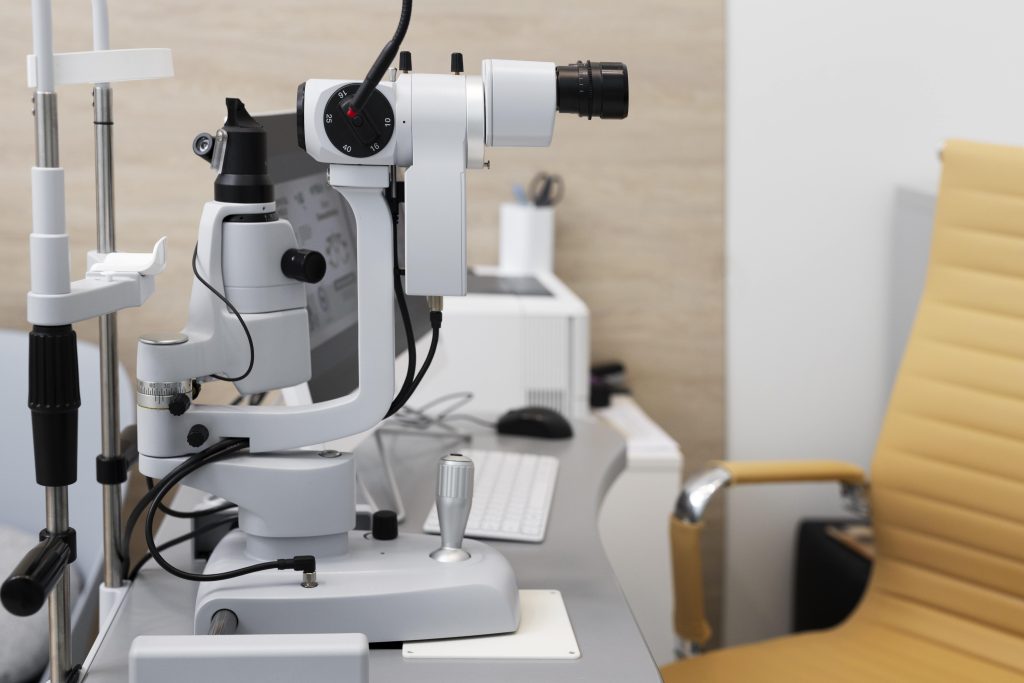Steroid medications address different medical conditions, such as arthritis and asthma. In ophthalmology, steroids are often prescribed for managing inflammatory, autoimmune or infectious diseases.
However, while they are used to manage symptoms of different conditions, they also pose a risk of developing various side effects when they are not taken as prescribed. One of the side effects that steroids may cause is cataracts, or specifically posterior subcapsular cataracts, which is an eye issue that causes a cloudy area to form underneath the eyes’ lens.
Here is all you need to know about the link between cataracts and steroids.
How Do Steroids Cause Cataracts?
A study conducted with 44 individuals who have rheumatoid arthritis and underwent systemic steroid therapy found that 39% of the participants developed cataracts or posterior subcapsular cataracts. Some researchers claim that those who take a higher dosage of steroids are more likely to have a greater prevalence of posterior subcapsular cataracts. On the other hand, some researchers refute this claim, stating there is no direct link between dosage and cataract development. Instead, it may be due to the individual’s susceptibility or genetics.
Currently, there is no conclusive evidence as to how cataracts form because of steroid consumption. However, most researchers believe that the steroid-induced changes in gene transcription within lens epithelial cells are what causes cataracts to form in the eye.
What to Do When Cataract Symptoms Occur Due to Steroid Use
Recognising the signs of cataract development is crucial for timely intervention, especially when associated with steroid use. Common symptoms include sensitivity to light, blurry or double vision, and difficulty seeing in low-light conditions. If you experience any of these indicators while using steroids, seeking prompt medical attention from a cataract specialist is imperative.
The cataract specialist will conduct comprehensive eye examinations to assess the extent of cataract development. During the consultation, you should be prepared to discuss your medical history, including details about steroid use, dosage, and duration.
Addressing Cataracts that Developed Due to Steroid Use
In some cases, especially in the early stages of cataract development, the specialist may recommend conservative management. This could involve updating eyeglass prescriptions to improve vision or implementing lifestyle modifications to manage symptoms. Moreover, regular monitoring may be advised to track any progression of the cataract.
Should the cataract advance in condition and conservative measures become insufficient, you may be advised to undergo surgical intervention.
Cataract surgery involves the cataract surgeon ridding the eye of the cloudy lens and using an artificial intraocular lens (IOL) as a replacement. This procedure is generally safe, promoting the restoration of clear vision.
For further insights, check out our guide on the different types of cataract surgeries and their procedures.
Mitigating the Risk of Cataracts Formation from Steroid Use
Here is how you can mitigate the risk of developing cataracts from steroid use:
1. Consume Foods Rich in Antioxidants
Research has shown that maintaining a diet rich in antioxidants can help mitigate the risk of cataract development, including those due to steroids. Moreover, the study showed that antioxidants led to a decrease in the incidence of steroid-induced cataracts and addressed the severity of its opacification. This is because free radicals were being scavenged by the antioxidants, therefore preventing oxidative damage to the lens.

2. Adhere to Your Steroid Prescription
Consistency in adhering to your prescribed steroid regimen is paramount for ensuring optimal results and mitigating the risk of adverse effects like cataract development. Therefore, be sure to follow your healthcare provider’s instructions meticulously, ensuring you take the prescribed dosage at the designated times. Abruptly stopping or altering the dosage without professional medical guidance can disrupt your treatment plan, potentially increasing the likelihood of side effects.
Moreover, consulting your healthcare provider regarding any concerns or changes in your health is essential, allowing for adjustments to your steroid prescription if needed.
3. Go for Eye Check-Ups Regularly
Routine eye check-ups help in the prevention of steroid-induced cataracts. These eye screenings help eye specialists provide a thorough assessment of the eye’s health. And with the possible early detection of cataract formation, it will allow for timely intervention, potentially preventing the progression of the condition.
If you are using steroids, especially for medical purposes, a regular eye examination is crucial. During these eye examinations, you may undergo vision tests that encompass assessments of the lens, retina, and intraocular pressure. The frequency of these check-ups may be adjusted based on the duration and dosage of steroid use.
For your eye check-ups, make sure to schedule an appointment at a reliable eye specialist clinic in Singapore so you can get the care that will best suit your condition.

Dr. Christopher Khng, specializes in Complex Cataract and Anterior Segment Reconstruction Surgery, in particular, Iris Reconstruction and surgery for Aniridia. His other areas of expertise include Complex Lens surgery, New Lens and Phacoemulsification technologies, Refractive surgery, Phakic IOLs (the Implantable Collamer Lens, ICL), and small-incision, topical anesthesia phacoemulsification cataract surgery. Dr. Khng is a member of the Singapore Medical Association (SMA), a Fellow of the American Academy of Ophthalmology, the American Society of Cataract and Refractive Surgery (ASCRS), and the European Society of Cataract and Refractive Surgery (ECSRS). He is registered with the Singapore Medical Council (SMC) in Singapore and with the General Medical Council (GMC) for practice in the United Kingdom.

